KfW Executive Board member Christiane Laibach visits LIMBUA
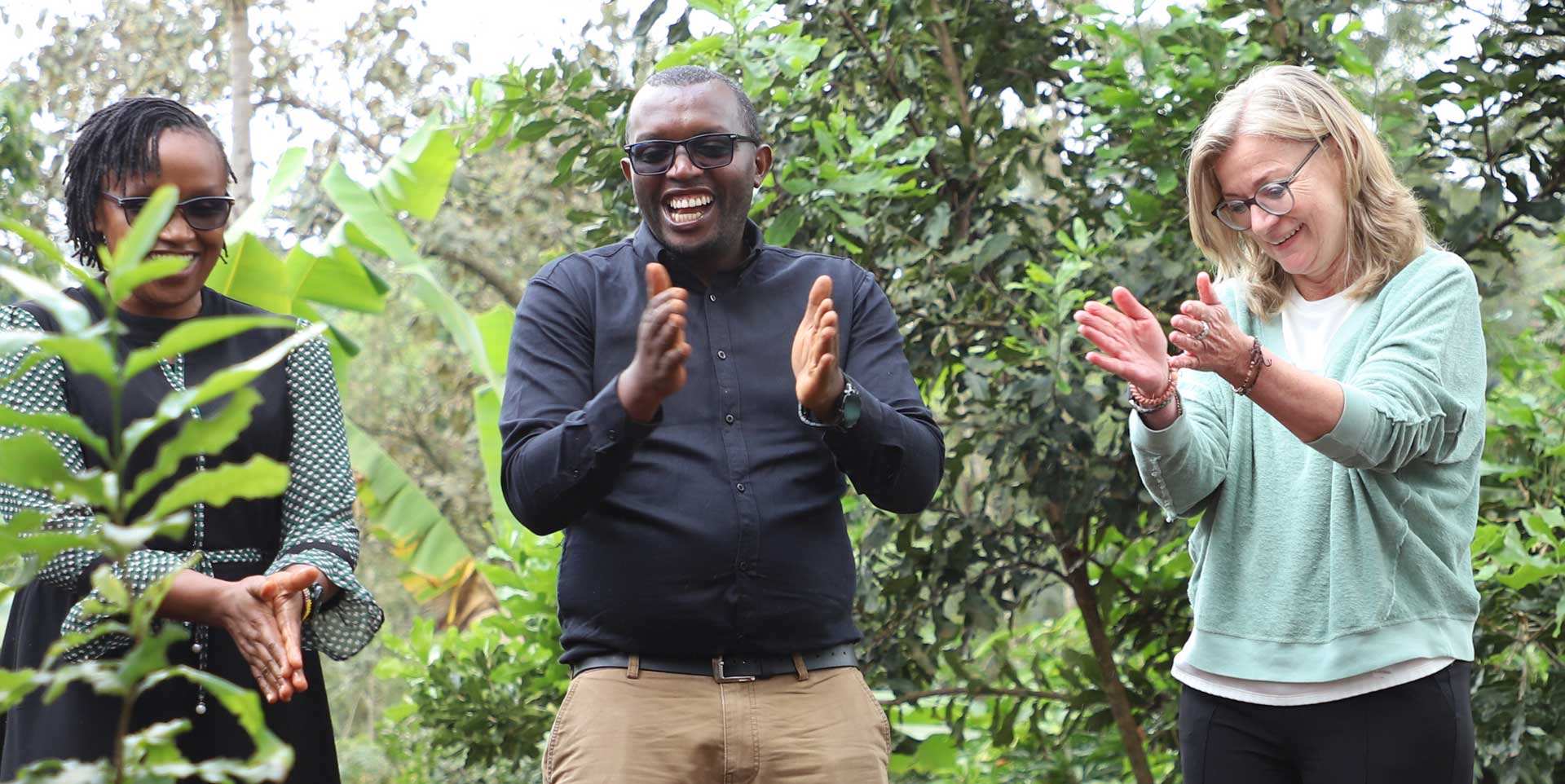
Great joy in Kenya: Christiane Laibach, member of the KfW Development Bank's Executive Board, and her team started their journey from Germany and visited our LIMBUA site in Ena.
Together with Kristina Laarmann (Director KfW office Kenya), Barbara von Toll (DEG Regional Director East Africa) and Christoph Tiskens (KfW Director, East Africa and African Union), topics such as sustainable agriculture and local value creation were the focus of the visit. The visit gave us the opportunity to present directly on site how our work is having a positive impact on the region and how we can further expand our partnership with KfW DEG.
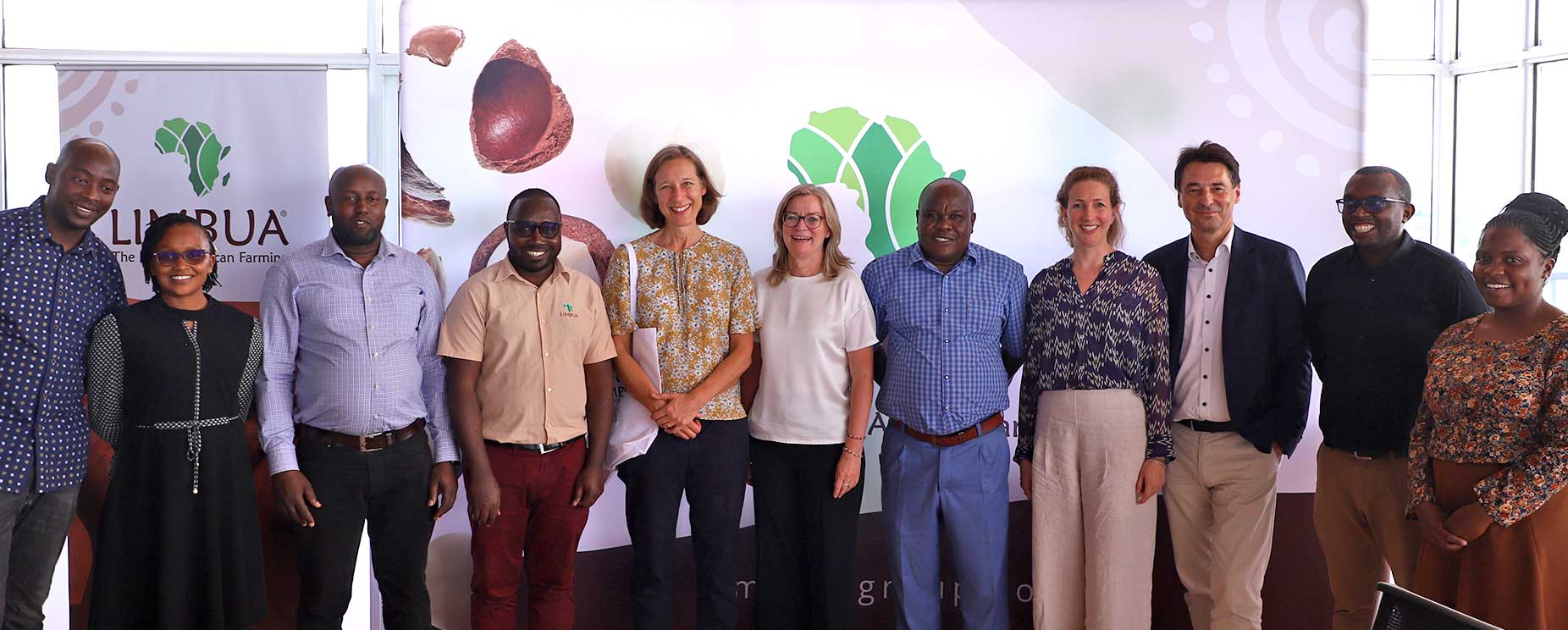
From left to right: Abigail Birech, Michael Langat, Kenneth Waweru, Kristina Laarmann (KfW), Christiane Laibach (KfW), Peter Wangara (LIMBUA Director), Barbara von Toll (DEG), Christoph Tiskens (KfW), Boniface Mutua, Ruth Imbahale
Income from mixed farms: a look at the yields of smallholder farmers
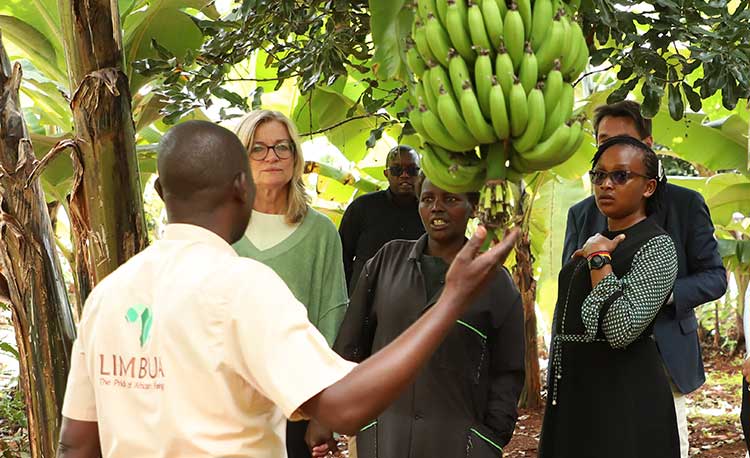
Organic bananas are one of the many agricultural products on an organic mixed farm
The combination of valuable cash crops and everyday food thus ensures that farmers are financially secure all year round.
The visitors were particularly impressed by the effectiveness of this approach, as it not only provides economic stability for farmers but also contributes to food security. The opportunity to generate income from both high-quality export products and sales to the local market illustrates the strength and sustainability of the LIMBUA model and demonstrates the advantages of diversified agricultural production.
Important inputs – compost fertilizer as the key to sustainable agriculture
During their visit, Christiane Laibach and her team learned about the importance and costs of agricultural inputs. By far the most needed input for smallholder farmers is compost fertilizer. We explained that every farmer has a compost heap on his property and is actively supported by our agronomists in producing high-quality compost from materials available directly on the farm.
We also provided information about our compost project in Ena, where organic production waste is converted into compost for the LIMBUA smallholders and provided to them free of charge.
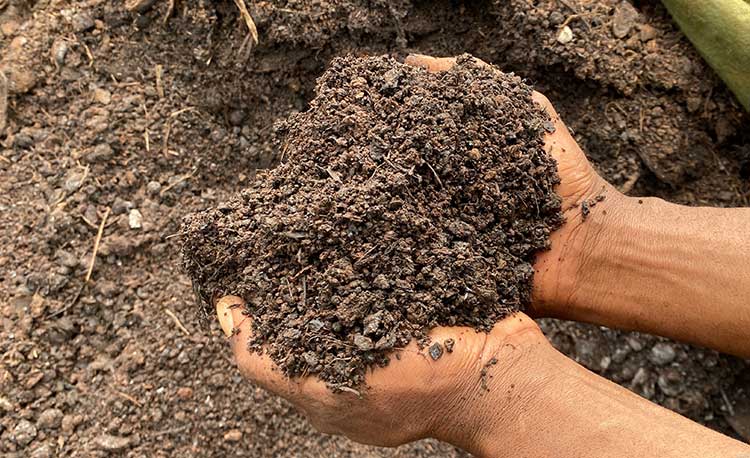
Compost is one of the most needed inputs on the organic mixed farms
Organic smallholder Anisa: a look at a successful mixed farm
The warm visit with one of our LIMBUA smallholder women was undoubtedly one of the highlights of our time with the visitors. Her impressive farm is an agroforestry system with 15 different crops such as macadamia, avocado, mango, coffee, bananas, sugarcane, cassava, arrowroot, fodder crops (Napier grass) and animals such as cattle and chickens. She runs the farm using mixed organic farming, which includes the highest level of Biodiversification. Anisa also produces high-quality compost from materials available directly on her property. The results are clear to see: the plants thrive and all the trees on her farm were well supplied with this natural fertilizer.
Anisa Kina Kivuti:
- Has been a LIMBUA contract farmer since 2017
- Runs the 2 acres organic farm full-time
- Cultivation of 15 different organic crops (macadamia, mango, bananas, pumpkins, etc.)
- She has, among other trees, 63 mature + 20 young macadamia trees, 2 mature + 22 young avocado trees
- Widowed, three children
- One of the sons is employed at LIMBUA
- With the income from the cooperation with LIMBUA, she has been able to build a stone house and educate her children
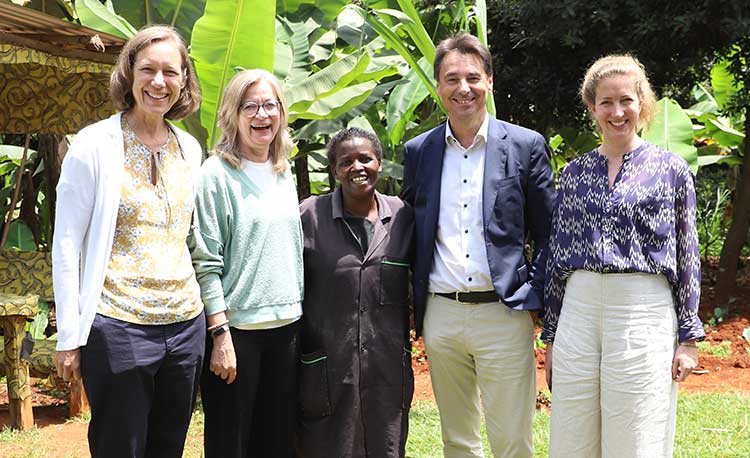
Smallholder Anisa was visibly pleased to welcome the KfW DEG team from Germany
Anisa also showed us her solar system, which she was able to purchase with the income from the sale of her harvest. The system provides enough sustainable energy to light her house and to power a socket for her television.
Anisa's son, Christopher Kibara, works in the security department at our LIMBUA site in Githungururu. We are committed to employing as many young people and family members of smallholder farmers as possible at LIMBUA, thus enabling them to earn their own income in rural areas.
Catch crop cultivation in sustainable agriculture
The visit to Anisa also highlighted the importance of intercropping for the resilience of farms. By growing a variety of plants at different heights – from towering trees to fodder crops to coffee trees in between – an effective ground cover is achieved, healthy soils are supported and crop-specific pests and diseases are reduced.
The interaction between crops and animals on the farm is another example of a sustainable circular economy: the cattle provide important fertilizer that nourishes the soil, while the plants on the ground in turn feed the cattle. This symbiotic relationship not only supports the environment, but also ensures multiple sources of income for farmers throughout the year.
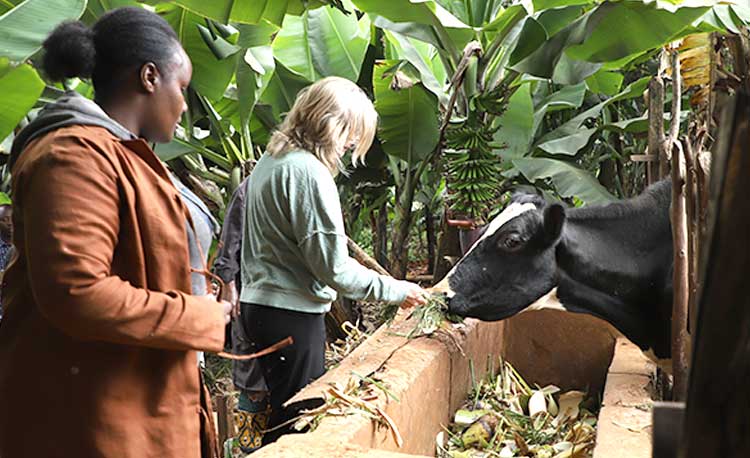
Animals play a crucial role in the sustainable circular economy
By focusing on growing food both, to feed her family and to generate a surplus, Anisa ensures that her business remains both economically and environmentally sustainable. The agroforestry model, which combines fruit and nut trees with other native tree species, creates a pleasant microclimate and discourages the incentive to cut down trees that provide income compared to a pure tree plantation focused only on timber production.
The importance of KfW Bank for LIMBUA
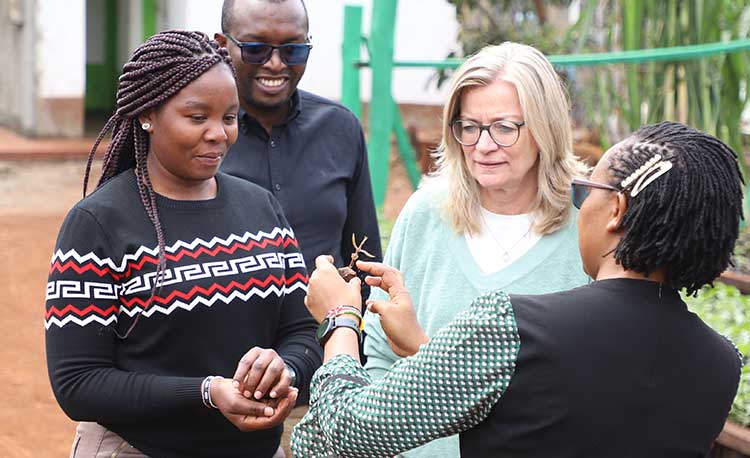
Christiane Laibach inspects a macadamia seedling in the tree nursery
Thank you for your visit, Christiane Laibach and team!

